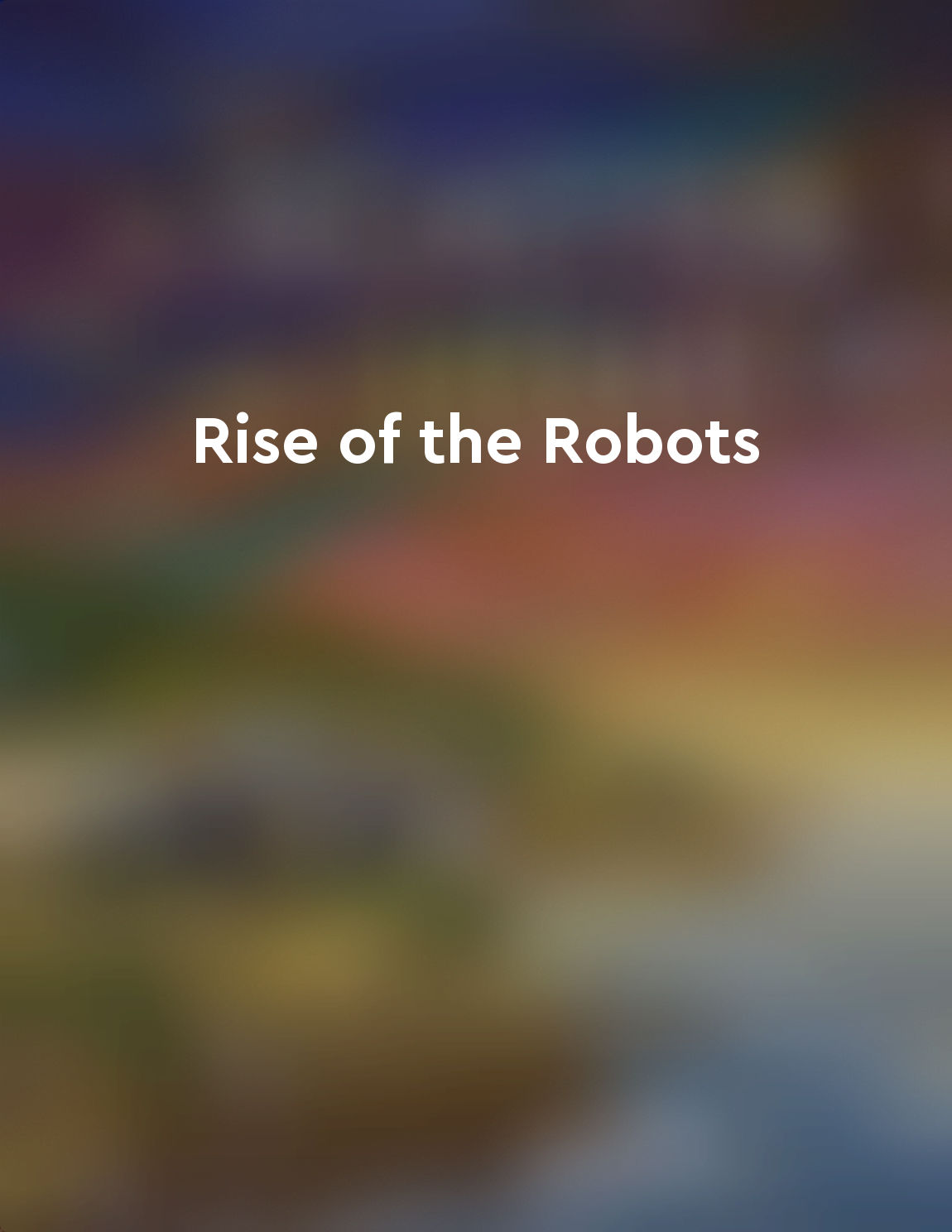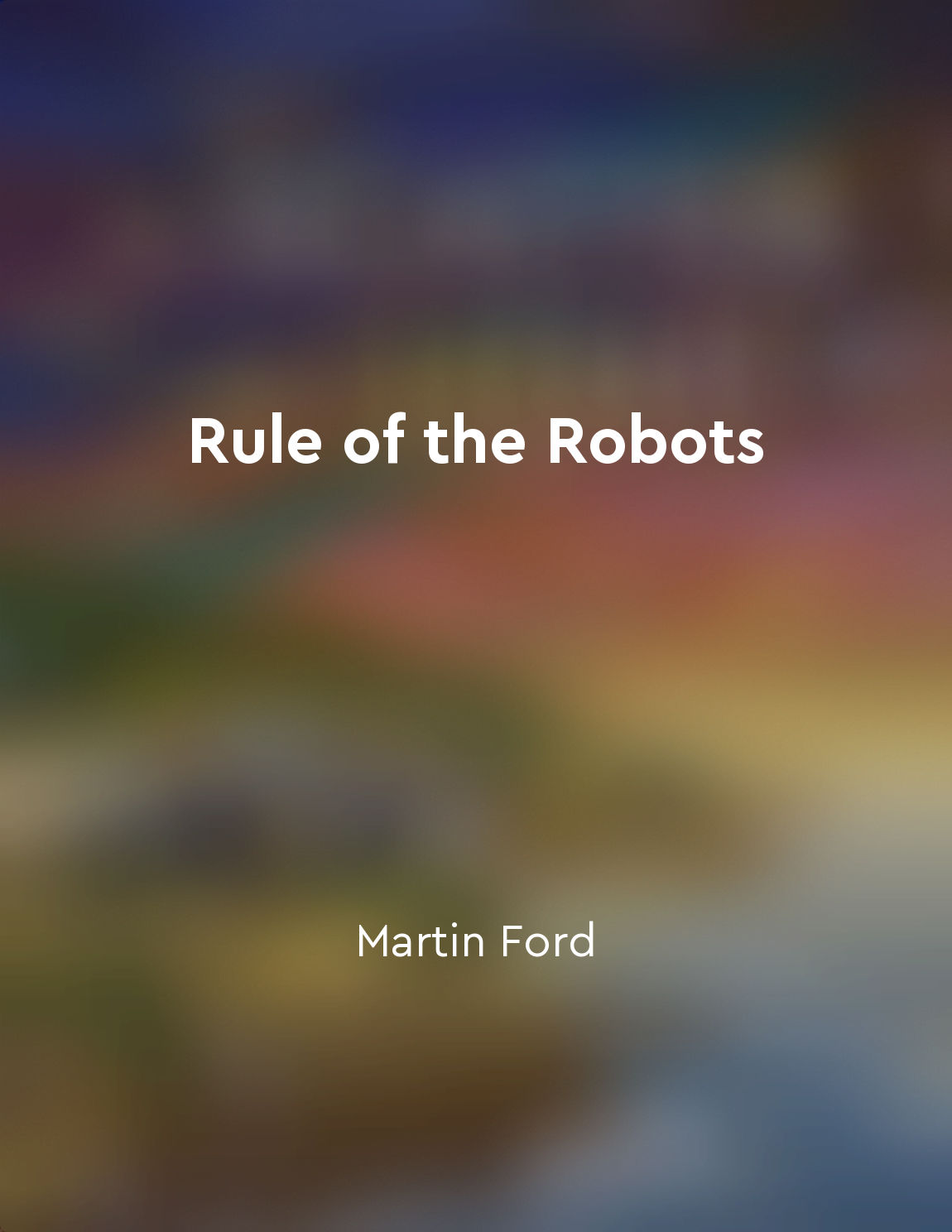The ethical implications of automation must be considered from "summary" of Rule of the Robots by Martin Ford
As we hurtle towards a future dominated by automation and artificial intelligence, it is imperative that we pause to consider the ethical implications of this seismic shift. The rise of machines capable of performing tasks that were once the sole domain of human beings raises a host of complex moral questions that cannot be ignored. One of the key concerns is the impact of automation on employment. As robots and algorithms continue to encroach on traditional jobs, millions of workers are at risk of being displaced. This raises the specter of widespread unemployment and economic upheaval, with potentially devastating consequences for society as a whole. Furthermore, the rise of automation also brings into question the very nature of work and its intrinsic value to human life. As machines take over more and more tasks, what will become of the millions of individuals who find purpose and fulfillment in their jobs? Will we be able to find new ways to define ourselves and our worth in a world where work is no longer a necessity? Another ethical concern is the widening gap between the haves and have-nots in a society increasingly driven by automation. As wealth and power become concentrated in the hands of a small elite who control the means of production, what will become of those who are left behind? Will we see a further erosion of social cohesion and a deepening of inequality, or will we find ways to ensure that the benefits of automation are shared more equitably among all members of society? In grappling with these ethical dilemmas, we must also consider the broader implications of automation on our values and beliefs as a society. What does it mean for our understanding of human dignity and worth if machines are able to outperform us in virtually every task? How will we redefine our relationship with technology and the natural world as automation continues to reshape our lives and our environment?- The ethical implications of automation are vast and multifaceted, touching on everything from economic justice to human identity. As we march inexorably towards a future dominated by machines, we must not lose sight of the fundamental moral questions that this transformation raises. Only by engaging with these issues thoughtfully and proactively can we hope to navigate the challenges that lie ahead and build a future that is both prosperous and just for all.
Similar Posts
China's government is heavily investing in AI technology
China's government has made a strategic decision to heavily invest in AI technology. The country has identified AI as a critica...
The Enlightenment encouraged reason and progress
The Enlightenment era was a period in history when people began to question traditional beliefs and systems in favor of reason ...

Companies must be transparent about their AI processes
It is imperative for companies to be forthcoming about how they develop and deploy AI systems. Transparency is not just a buzzw...

Every technology has its own biases and agendas
When we interact with technology, we often assume that it is neutral, that it simply exists to serve us, the users. However, th...

The rise of robots is a transformative force that is changing the way we live and work
The introduction of robots into our society is not just a minor shift in technology; it is a seismic transformation that is res...
The implications of sentient machines go beyond technology
The realm of sentient machines is not confined to the realm of technology. The implications of these intelligent machines exten...

Workers must acquire new skills to remain competitive in an increasingly automated world
As technology continues to advance at a rapid pace, the traditional roles of workers are being increasingly threatened by autom...

Robots are becoming increasingly integrated into our daily lives
The infiltration of robots into our daily lives is becoming more and more prevalent. These machines are no longer confined to t...
Technology is a tool, not a threat if used wisely
The central idea we must keep in mind when discussing the impact of technology is that it is a tool - a powerful tool, to be su...
Moral values must align with superintelligent AI
Moral values must align with superintelligent AI because if we don't get this right, then the superintelligent AI could cause i...


